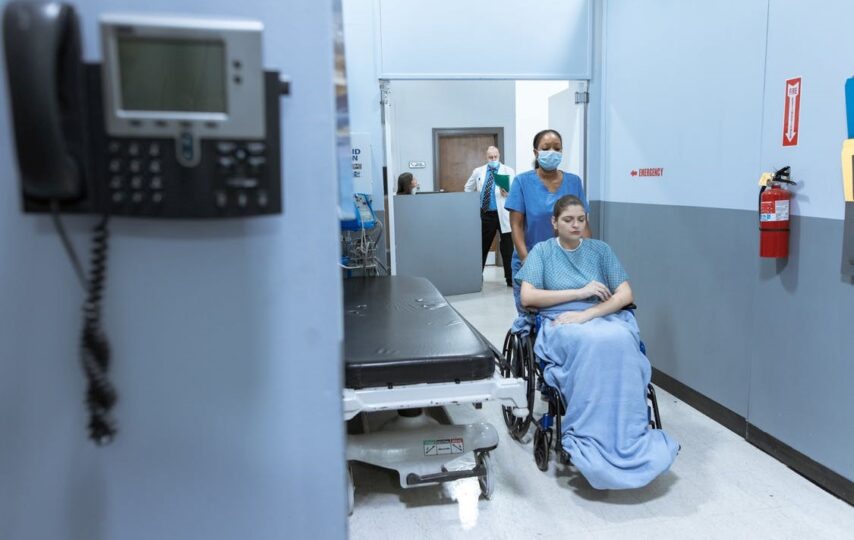Nursing is a labor of love, and professionals dedicate themselves to patient care and quality to ensure positive treatment outcomes. Nurses devote their time, attention, and energies to comforting and uplifting patients struggling with various ailments and injuries. They extend kindness towards family members and loved ones dealing with overwhelming stress and trauma with terminal diagnoses.
Skilled and qualified nurses impact patient care by regulating and improving healthcare standards, ensuring patient safety, and extending emotional support. Nursing communities make profound contributions through research endeavors, awareness campaigns, and improvements in patient care standards.
In recent years, minority nurses have made monumental strides in advocating for healthcare equity and accessibility for underserved communities. Nursing has emerged as a dynamic and continually evolving healthcare career with rewarding clinical and non-clinical pathways for dedicated professionals. Some practitioners specialize in clinical care to work directly with patients, while others pursue doctoral programs and nursing leadership.
Let’s take a deeper look at how the nursing community impacts patient care.
Delivering Primary Care with Specialized Clinical Skills
Healthcare sectors worldwide are combatting acute staffing shortages, creating an enormous burden on hospitals and facilities struggling to manage increasing patient demands. The rising population of retiring physicians in various specialties has mounted pressure on specialized nurses with advanced clinical training.
Nurses are increasingly taking over the primary healthcare duties of physicians, diagnosing illnesses and designing treatments. There’s a burgeoning demand for skilled BSN and MSN practitioners, with tremendous job growth and financial stability predictions. Registered nurses are actively pursuing higher education to explore opportunities with flexible schedules and higher salary packages.
A BSN degree will mark the first step towards a clinical specialization, healthy work-life balance, and eventually your private practice. Practitioners can enroll in an online RN to BSN program to advance their careers with clinical training. E-learning platforms support an interactive remote learning experience, allowing professionals to pursue higher education without overwhelming burdens.
Family nurse practitioners (FNPs) with advanced clinical specializations and years of experience can open up their private practice to administer primary care. Nurses can explore a wealth of domains to pursue clinical training in their chosen discipline, such as gerontology, cardiac care, and ER. Nurses who prioritize higher education make profound contributions to patient care by improving clinical standards and ensuring positive treatment outcomes.
Skilled and qualified nurses help healthcare sectors combat staffing shortages and maintain clinical preparedness to deal with medical emergencies.
Ensuring Patient Safety & Treatment Success
Nurses work tirelessly to ensure patient safety and monitor treatment results to prevent rehospitalization. Nurse practitioners are directly responsible for patient safety, whether in the ER or the cardiac ward. When a patient is admitted to the hospital, nurses are the first practitioners to engage with them. Nurses examine vital signs and symptoms to make observations, perform a diagnosis and recommend medication to provide immediate relief.
A registered nurse practitioner conducts the preliminary investigation, setting the stage for a physician or doctor to design the treatment. Skilled MSN practitioners and FNPs perform diagnosis, design treatment, prescribe medication, and monitor outcomes. There’s immense pressure to maintain accuracy, for the slightest error can lead to medical malpractice by compromising patient safety.
Nurses undertake rigorous pharmacological training to ensure accuracy while calculating medication dosage and administering drugs. They closely monitor symptoms and side effects to rule out risks and maintain patient comfort throughout hospitalization. Nurse practitioners collaborate with physicians and doctors to ensure favorable treatment outcomes and prepare preventive care strategies.
In remote areas with acute staffing shortages, nurses fall entirely on patient care and safety responsibility. Professionals often use telehealth and digital tools to interact with practitioners remotely and design accurate treatments for their patients.
Extending Kindness & Emotional Support
Seasoned nurse practitioners understand that extending emotional support and compassion is integral to their clinical profile. Nurses are ever-present to comfort caregivers and family members, holding their hands as they wait anxiously outside operation theatres. Only a nurse would take out time to build connections and have meaningful conversations with patients long after the shift has ended.
Patients with life-threatening, painful, and terminal illnesses experience overwhelming bouts of stress, anxiety, and depression. Stress is incredibly damaging as it gives rise to cortisol – a lethal hormone that inflicts grave mental and bodily harm. Skilled nurses understand the significance of helping patients combat stress to elevate their wellbeing and overall life quality.
Nurses know all the tricks and strategies to help patients and caregivers process the stress of chronic and terminal illnesses. Nurses help patients process their fear, anxiety, and stress through healthy and mindful strategies. They engage hospitalized patients with creative activities, multimedia, and recreational fun to make them comfortable and mentally engaged. At times, sitting down with a patient to listen to their concerns and emotional anguish is the best way to help them de-stress.
Raising Community Awareness to Promote Self-Care Concepts
Nursing communities are dynamic and powerful advocates for preventive care, self-care, and healthy lifestyle shifts. Nurses join hands with like-minded practitioners and nursing associations to raise awareness on misinformation campaigns, preventive care, risk factors, and healthy lifestyle habits.
Nurses have played a crucial role in fighting misinformation around mass vaccination drives during the ongoing COVID-19 pandemic. They have worked tirelessly to supply households and families with evidence-based resources about COVID-19 vaccines. Likewise, nursing communities have spread awareness around HIV/AIDS, diabetes type 2, breast cancer, and other preventable illnesses.
Practitioners help their patients and communities become aware of habits and health risks that they can prevent with mindful lifestyle shifts. They aid patients and families in designing healthy lifestyles and nutrient-rich diets to manage chronic illnesses and avoid rehospitalization. Nurses empower patients with information and resources to manage their symptoms better and reinvent their mental and physical health.
Final Thoughts
The challenge of narrating the contributions of nurses is akin to fitting an ocean into a reservoir. Such is the impact of nurse practitioners that one can write volumes on their dedication and devotion to their profession. However, as we try to measure their impact objectively, we realize that practitioners with advanced qualifications make more meaningful contributions.
Practitioners who pursue academic growth and professional development profoundly impact their communities with clinical support. Nurses rely on clinical specializations and advanced training to play an active role in patient care and treatment design.
Practitioners who pursue MSN and doctoral programs deliver primary care, lead advocacy groups, and make research-driven contributions to improve care standards. Nursing leaders improve healthcare facilities with continual improvements to care standards, patient safety protocols, and pharmacological interventions.



